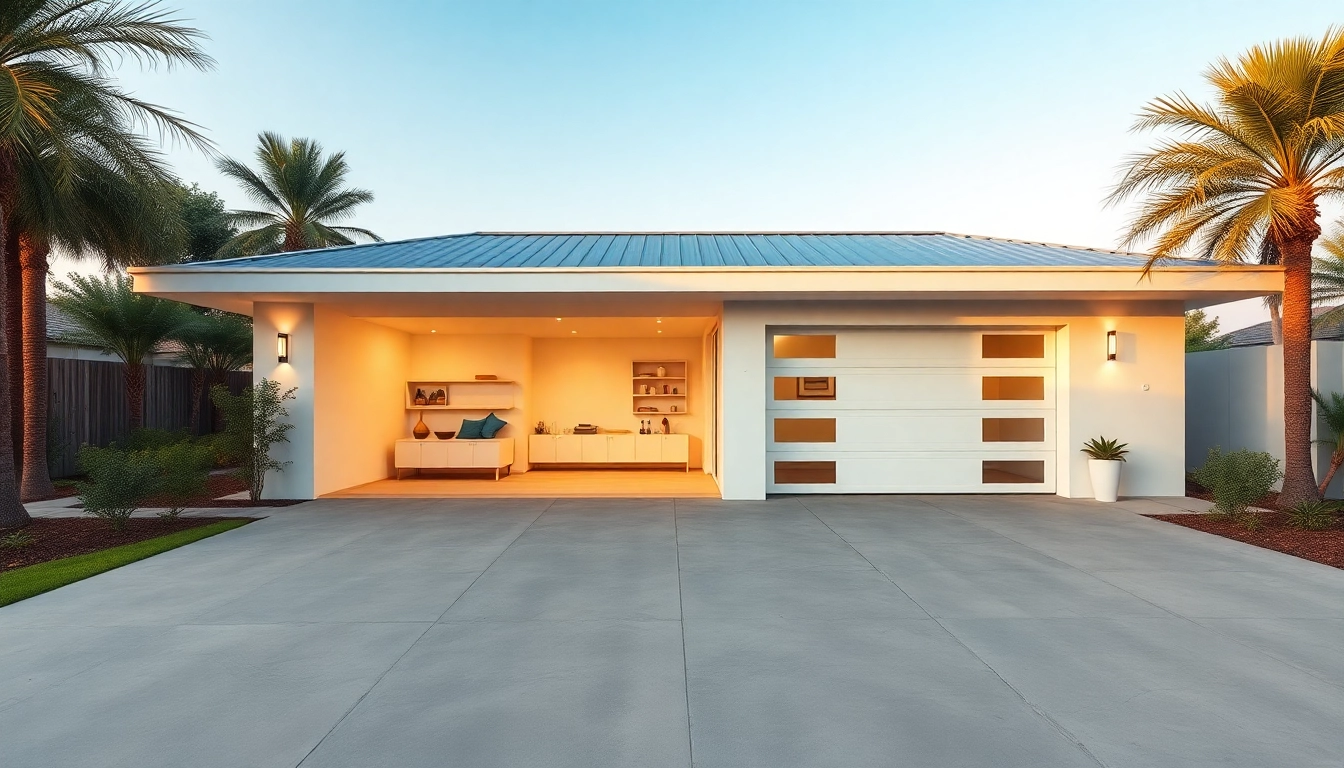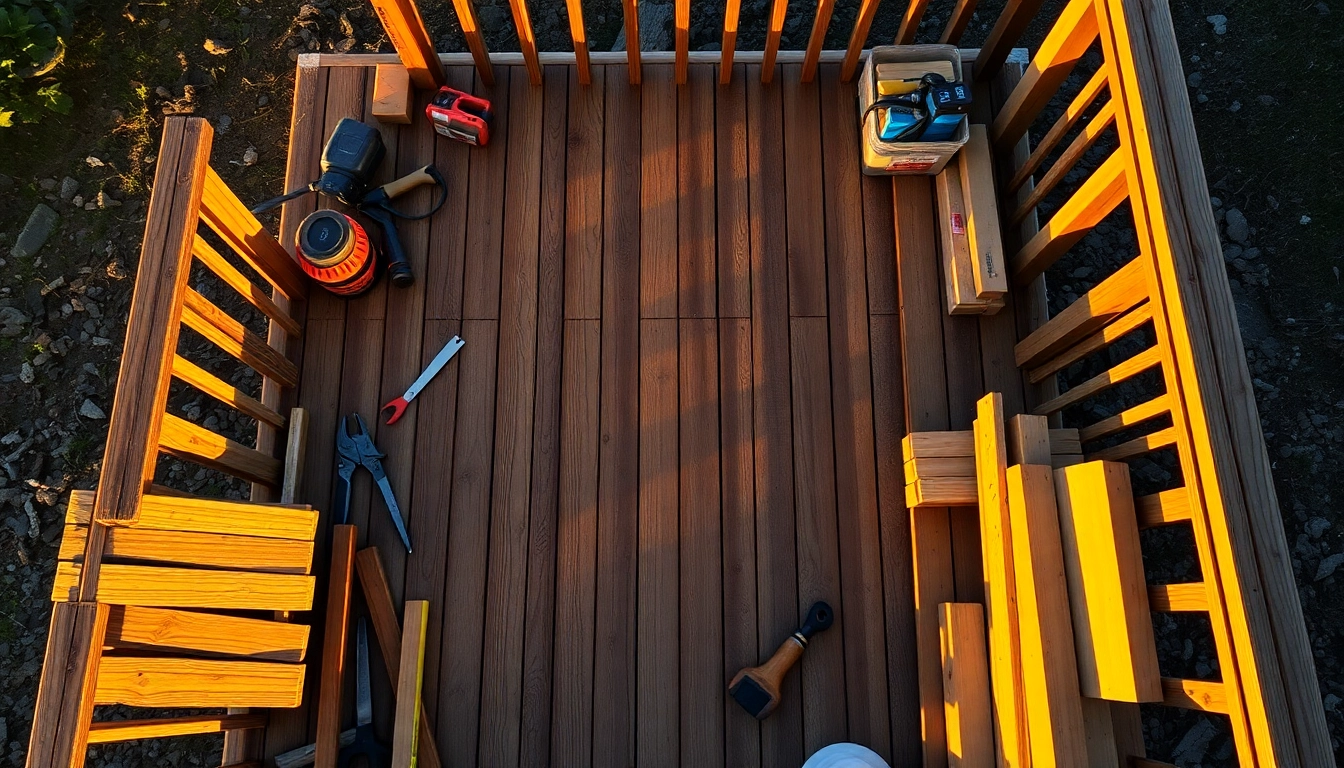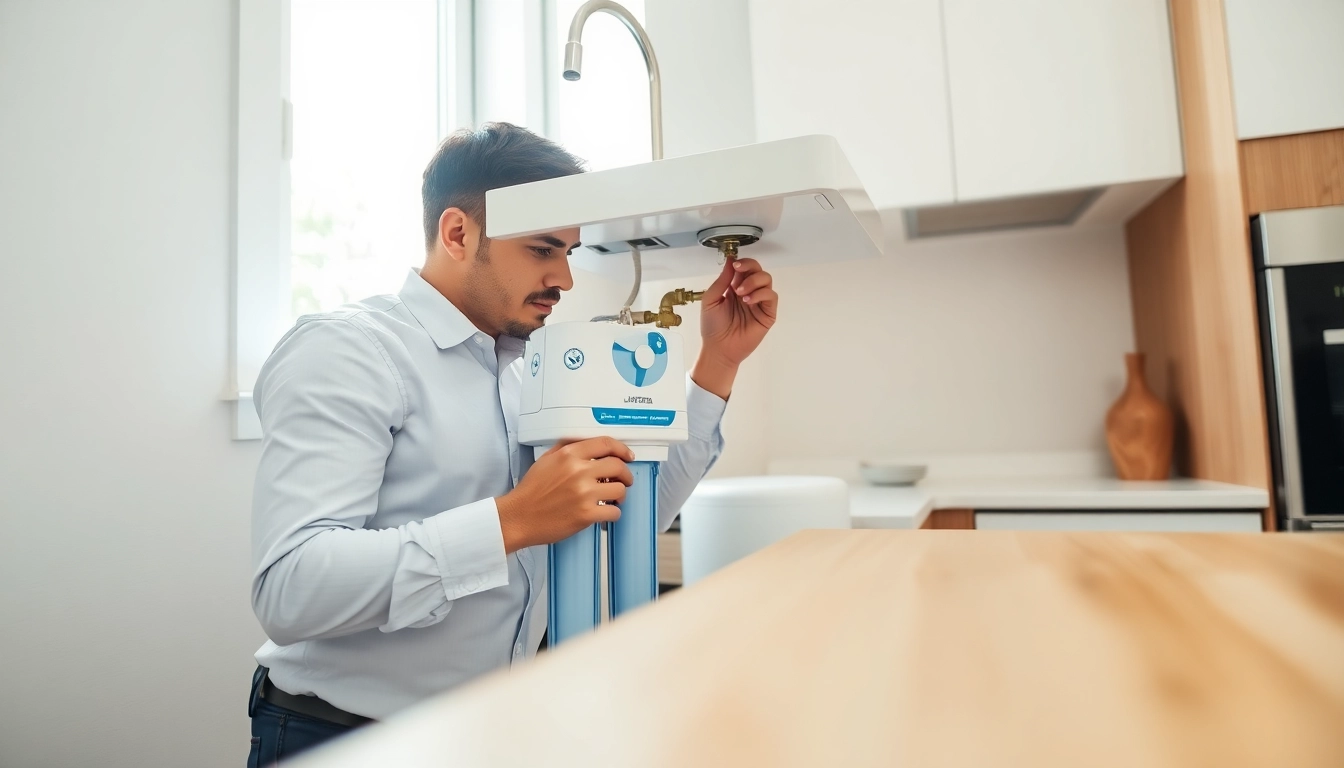Introduction to Custom Garages and Their Benefits
Custom garages are tailor-made spaces designed to meet specific needs, combining functionality with aesthetics. Unlike standard garages, custom options allow homeowners to create a space that not only secures their vehicles but also serves various other purposes based on individual preferences and requirements. These bespoke structures can be integral to a home, enhancing not just utility but also the property’s overall value. Understanding the significance and advantages of custom garages is the first step toward making informed decisions about your project.
Understanding Custom Garages
Custom garages come in many shapes and sizes, incorporating advanced construction techniques and modern designs. They can be detached or attached, single or multi-car, and can be customized to include storage solutions, workspaces, or even recreational areas. The flexibility of design means that each garage is unique, tailored to the homeowner’s lifestyle and space constraints.
Benefits of Customization
The key advantage of custom garages lies in their adaptability. Here are some benefits:
- Personalization: Homeowners can choose the layout, materials, and finishes that reflect their style and needs.
- Enhanced Functionality: Custom garages can be equipped with features like workshop areas, additional storage, or even guest accommodations.
- Increased Property Value: A well-designed garage can significantly boost a home’s value and appeal to future buyers.
- Higher Quality Construction: Builders of custom garages tend to use superior materials and craftsmanship than standard prefabricated options.
Popular Uses for Custom Garages
While the primary purpose of a garage is to store vehicles, many homeowners have expanded the functionality of their custom garages:
- Storage Solutions: With the right shelving and organizational tools, garages can efficiently store seasonal items, tools, and sports equipment.
- Home Workshops: Many choose to include workspaces equipped with tools for DIY projects, crafting, or woodworking.
- Entertainment Rooms: Custom garages can be transformed into man caves, game rooms, or even home theaters.
- Fitness Areas: Some homeowners convert garages into personal gyms or studios for yoga and other fitness activities.
Choosing the Right Design for Your Custom Garage
Choosing the right design for your custom garage involves careful consideration of several factors, from size to functionality and aesthetics. Knowing what you want to achieve will guide your decisions.
Factoring in Size and Space
The first step in designing your custom garage is determining the size. Consider not just the number of vehicles but also potential storage needs and additional uses.
For example, a two-car garage typically measures around 24′ x 24′, but if you wish to include a workspace or extra storage, a larger design may be necessary. Planning for vertical storage with shelving can also maximize space in smaller garages.
Design Styles: Traditional vs. Modern
Design style is another essential aspect to consider. Traditional garages might incorporate classic brick or wood siding, while modern designs often feature clean lines and sleek materials like metal or composites. Below are some aspects of both styles:
- Traditional: Often features gabled roofs, more intricate woodwork, and fits seamlessly with older architectural styles.
- Modern: Emphasizes minimalism, often utilizing large windows, open spaces, and innovative materials.
Deciding on a style will depend on your home’s existing aesthetics and your personal taste. It is advisable to consult with a designer or architect who can offer insights and ideas.
Integrating Functional Features
Incorporating functional features enhances the usability of your custom garage. Some features to consider include:
- Electric door openers: Convenient for easy access.
- Interior lighting: Bright, energy-efficient lighting will make the space usable for various tasks.
- Insulation: Helps to maintain a comfortable temperature if the space is used as a workshop or gym.
- Drainage Solutions: Particularly valuable if you’re storing vehicles or using the garage for work, preventing water-related issues.
Materials and Construction Methods
The choice of materials and construction methods plays a significant role in the durability and overall appeal of your custom garage. Understanding the available options can guide you in making informed decisions.
Best Materials for Durability and Aesthetics
When building a custom garage, selecting the right materials is crucial. Common materials include:
- Wood: Offers versatility in design but may require more maintenance.
- Metal: Steel and aluminum are durable and often come with warranties, making them ideal for longevity.
- Concrete: Provides a sturdy foundation and is excellent for structure but can be costly.
- Eco-friendly materials: Sustainable options like recycled metals or locally sourced wood can lower the carbon footprint of your construction.
Exploring Prefabricated vs. Custom Build
There are two primary approaches to building a garage: prefabricated and custom builds. Prefabricated garages can be quicker and often less labor-intensive. However, they come with limitations in design flexibility.
Custom-built garages provide the advantage of tailoring design and materials to your exact specifications, though they may take longer and cost more. Consider your budget and timeline when deciding between these options.
Energy Efficiency in Garage Building
Integrating energy-efficient techniques and materials into your custom garage build can lower utility costs and enhance comfort. Strategies to consider include:
- Insulation: Proper insulation helps moderate temperatures.
- Energy-efficient windows: Reduces heat loss and can provide natural light.
- Solar Panels: Utilizing renewable energy can offset energy costs and may increase the property value.
Planning for energy efficiency from the outset will not only save money over time but also contribute to sustainability.
Cost Considerations for Custom Garages
Understanding the financial implications of building a custom garage is essential. Budgeting appropriately can prevent delays and ensure the project is completed successfully.
Average Costs and Budgeting Tips
The cost of building a custom garage varies based on size, materials, and features. On average, a simple one-car garage can cost between $10,000 to $20,000, while more elaborate designs can reach upwards of $50,000 or more.
Here are some budgeting tips to ensure you stay within your financial plan:
- Get multiple quotes: Always compare prices from different contractors.
- Understand all costs: Factor in permits, materials, and labor.
- Plan for the unforeseen: Building projects often encounter unexpected costs, so include a contingency fund in your budget.
Understanding ROI on Custom Garage Investments
Investing in a custom garage can yield a high return on investment (ROI). A well-constructed garage not only enhances the home’s curb appeal but also adds practical value. Statistical estimates suggest that homeowners can typically recover 60-80% of their garage investment at resale.
To maximize ROI, focus on features that are high demand among buyers, such as extra storage space, durable materials, and desirable design elements. Trend research can guide these decisions.
Financing Options for Your Garage Project
Financing a custom garage project can be achieved in several ways. Many homeowners choose to use savings or equity from their homes. Other popular options include:
- Personal Loans: Unsecured loans provide a lump sum without using property as collateral.
- Home Equity Loans: Utilizing home equity can provide funding often at a lower interest rate.
- Construction Loans: Tailored specifically for home building or renovations, these loans can cover costs associated with your project.
Evaluate your financial situation and choose a financing method that fits your budget and goals.
Maintenance and Long-Term Care of Custom Garages
Once your custom garage is built, ongoing maintenance becomes crucial to preserve its condition and functionality. Regular care will ensure it remains an asset for years to come.
Essential Maintenance Practices
To maintain your custom garage, consider these essential practices:
- Regular Inspections: Check roofing, siding, and flooring for any signs of wear or damage.
- Cleaning: Keep the space clean, especially if used for vehicles or work. Regular cleaning can help prevent pest infestations and degradation of materials.
- System Maintenance: If your garage includes HVAC, electric doors, or plumbing, regular checks and servicing are essential.
Enhancing Longevity with Upgrades
Over time, consider upgrades that can enhance the longevity and value of your custom garage. Potential improvements include:
- Advanced Security Systems: Installing cameras or alarms can protect your investments.
- Better Insulation: Upgrading insulation can lead to significant savings on energy bills and improve comfort if you spend time in the garage.
- Workstation Installations: Creating dedicated workspaces can make the garage multifunctional.
When to Seek Professional Help
While many homeowners take on DIY projects, certain jobs require professional expertise. Know when it’s time to call in the pros:
- Structural Concerns: Any issues with the foundation or integrity of the structure should be addressed by a qualified contractor.
- Electrical Work: If electrical installations are necessary, hiring a licensed electrician is essential for safety.
- Permits and Code Compliance: Consulting local authorities while building to comply with zoning and building codes is necessary for legal construction.
Building and maintaining a custom garage requires planning and care, but the final result—a personal, functional space that adds value to your home—is well worth the investment. Educating yourself through the stages of design, implementation, and upkeep will empower you to create a space that you will enjoy for many years to come.



